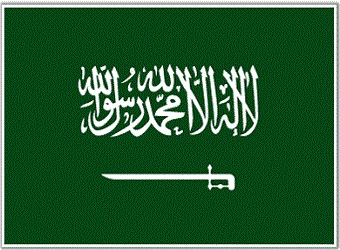Palestinian billionaire Sabih al-Masri, who also holds Irish citizenship, was released Sunday from detention in Saudi Arabia after being caught up in the ongoing anti-corruption drive involving the arrest of more than 200 Saudis.
After several days of questioning about his business dealings and partners in the kingdom, Masri (80) said after his release on Sunday that he had been treated with “respect” and would return to his permanent residence in Amman, the Jordanian capital, once he had concluded his meetings in Riyadh.
It is understood Ireland’s Department of Foreign Affairs was not involved in the efforts to secure Masri’s release.
No formal charges were levelled against Masri.
It is not known if he has reached a monetary settlement with the Saudi authorities to secure his release.
The son of late King Abdullah and former National Guard chief prince Miteb bin Abdullah was released after handing over $1 billion to the regime.
Masri had been warned not to travel to Saudi Arabia following last month’s mass arrests of Saudi princes, ministers and businessmen in the most extensive purge in the kingdom’s history triggered by Crown Prince Mohamed bin Salman, the king’s favourite son, defence minister and economic czar.
The Saudi attorney general has alleged $100 billion has been siphoned off in embezzlement or kick-backs in recent decades.
Lebanese prime minister Saad Hariri was also caught up in the purge and questioned about his bankrupt construction firm before being compelled to resign his post and detained for two weeks.
There had been international pressure on Riyadh to release Hariri who returned to Beirut and reversed his resignation. He has Saudi, Lebanese and French citizenship.
A scion of a wealthy family from the northern West Bank city of Nablus, Masri, who also holds Saudi and Jordanian citizenship, he ‘accumulated much of his fortune in partnership with powerful Saudis while supplying food for troops based in the kingdom during the 1991 US-led military campaign to oust Iraq from Kuwait.
Masri family
A founder of the Palestine Securities Exchange, Masri was elected chairman of the Arab Bank, Jordan’s largest lender, in 2012 following the retirement of its founder, Abdel Hamid Shoman.
The Masri family has major holdings in real estate, hotels and telecommunications companies established in the West Bank after the 1993 Oslo Accord ushered in a measure of Palestinian self-rule.
Masri’s brief detention shocked Jordan where his investments loom large in the economy. Concern was expressed that the Saudi crown prince sought to exercise political leverage on vulnerable Jordan to follow his impulsive and risky lead in regional affairs.
Prince Mohamed also wants the Jordanian monarch to agree to a Palestinian-Israeli peace deal put forward by the US although its leaked terms have been rejected by the Palestinians.
There was controversy in Ireland after it emerged that members of the Masri family were granted Irish nationality in 1992 as part of the “passport for sale” scheme.
Applications for Irish passports were made for al-Masri, his wife, Najwa, his daughter, Sireen and son, Khaled.
The decision to grant the family passports was in exchange for a £1 million investment into the then taoiseach Albert Reynold’s family food company.
When the deal emerged in 1994 Reynolds argued that the granting of nationality to major investors had been place since 1988 and that some 30 companies had benefitted from the programme.
The “passport for sale” scheme was abolished in 1998.
Under the scheme, applicants seeking naturalisation had to make an investment of £1 million per person in the State.
The investment had to be for job creation or job maintenance. A substantial residence in Ireland also had to be purchased by the applicant. 
Source: The Irish Times & Reuters


